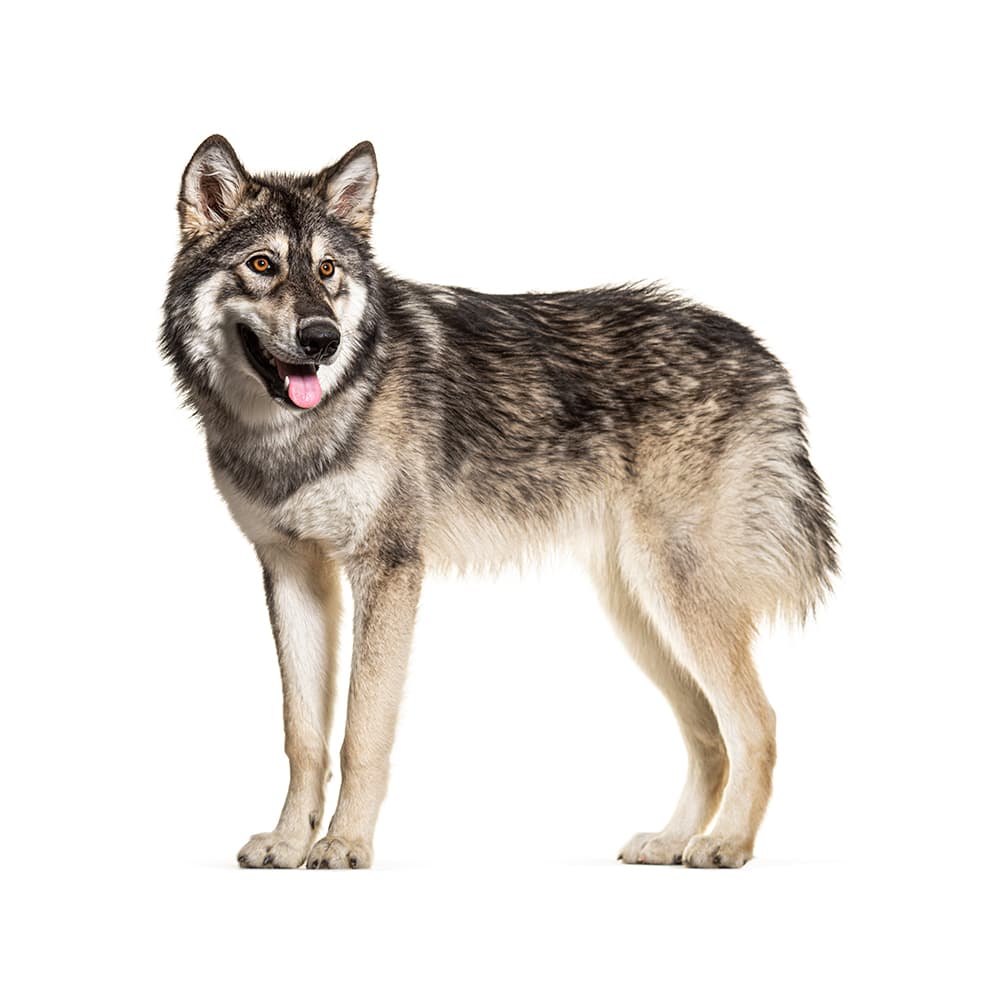Discover your dog's connection to this breed and 200+ others


Discover your dog's connection to this breed and 200+ others



The Northern Inuit Dog breed is relatively new, with roots in the late 1980s in the United Kingdom. The breed was started by Eddie Harrison, who wanted to develop a dog breed that closely resembled the wolf in appearance while maintaining the docile, friendly nature of domesticated dogs. He combined several breeds such as the German Shepherd, Siberian Husky, and possibly others to achieve this. Despite their appearance, they are not directly related to true wolf breeds or hybrids. The breed is yet to be recognized by major kennel clubs but has its organization, the Northern Inuit Society, founded in 1998.
Northern Inuit Dogs are known to be generally healthy dogs, but as a larger breed they are at risk for developing orthopedic problems, such as hip and elbow dysplasia. They may also be susceptible to cryptorchidism and genetic eye conditions such as inherited retinal dysplasia.
Northern Inuit Dogs are known for their intelligence, friendliness, and strong pack mentality. They are loyal and affectionate towards their families but can be wary of strangers if not properly socialized. They require mental and physical stimulation, and due to their strong pack mentality, they do not do well with extended periods of solitude. These dogs are better suited to experienced owners who have the time to dedicate to training and positive reinforcement.
The Northern Inuit Dog gained fame after being used as the breed for the "direwolves" in the television series Game of Thrones.
Despite their wolf-like appearance, Northern Inuit Dogs have no more wolf in them than any other breed of dog.
They are sometimes referred to as "NAID" dogs, short for Northern Inuit Dogs.
Northern Inuit Dogs have a thick double coat that helps insulate them in colder temperatures. The topcoat is straight and weather-resistant, while the undercoat is dense and soft.
https://www.mountainmystnortherninuits.com/northern-inuit-breed-standard https://www.nisociety.net/
Harrison, E. (2010). The Northern Inuit Dog: A History. UK Northern Inuit Society.
Recommended by top vets with decades of experience
21 breeds
64 genetic health markers
50 genetic trait markers
